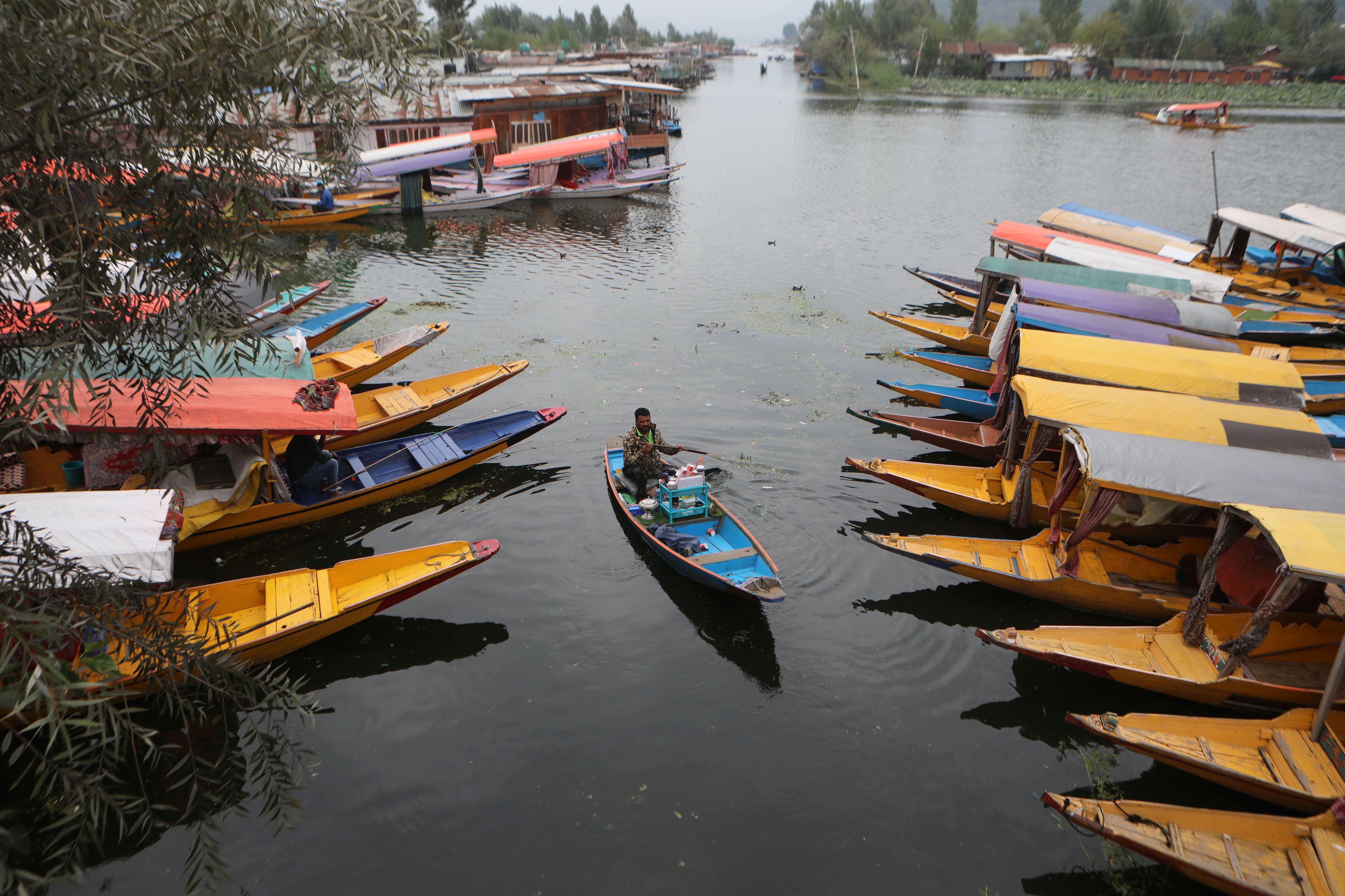India and Pakistan spar at UN after Shehbaz Sharif likens people of Kashmir to Palestinians
India calls Pakistan prime minister’s speech a ‘travesty’
Your support helps us to tell the story
From reproductive rights to climate change to Big Tech, The Independent is on the ground when the story is developing. Whether it's investigating the financials of Elon Musk's pro-Trump PAC or producing our latest documentary, 'The A Word', which shines a light on the American women fighting for reproductive rights, we know how important it is to parse out the facts from the messaging.
At such a critical moment in US history, we need reporters on the ground. Your donation allows us to keep sending journalists to speak to both sides of the story.
The Independent is trusted by Americans across the entire political spectrum. And unlike many other quality news outlets, we choose not to lock Americans out of our reporting and analysis with paywalls. We believe quality journalism should be available to everyone, paid for by those who can afford it.
Your support makes all the difference.India and Pakistan sparred over Kashmir at the UN General Assembly after Pakistan's prime minister Shehbaz Sharif drew parallels between the people of the Himalayan territory and Palestinians.
Kashmir is at the heart of a decades-old dispute between India and Pakistan, where both countries claim the region as theirs, but control only parts of it.
“Similarly, like the people of Palestine, the people of Jammu and Kashmir too, have struggled for a century for their freedom and right to self-determination,” Mr Sharif claimed in his speech on Friday.
"Instead of moving towards peace, India has resiled from its commitments to implement the Security Council resolutions on Jammu and Kashmir," he said.
The United Nations Security Council Resolution adopted in 1948 called upon the governments of the new dominions of India and Pakistan to refrain in any way from aggravating the situation in Kashmir.

He claimed that to "secure durable peace" India must "reverse the unilateral and illegal measures it has taken" five years back. New Delhi must "enter into a dialogue for a peaceful resolution to the Jammu and Kashmir dispute in accordance with the UN Security [Council] resolutions and the wishes of the Kashmiri people," Mr Sharif added.
The Indian government led by prime minister Narendra Modi scrapped the Muslim-majority region’s semi-autonomous status and downgraded the former state to a federally governed territory. It was also divided into two federal territories, Ladakh and Jammu-Kashmir, ruled directly by New Delhi, allowing it to appoint administrators to run the territories.
Mr Sharif also accused India of extra-judicial killings, prolonged curfews, and other "draconian measures" in the region.
India used its right to reply at the General Assembly to hit back at Pakistan, calling Mr Sharif's speech a "travesty".
"A country, run by the military, with a global reputation for terrorism, narcotics trade and transnational crime has had the audacity to attack the world’s largest democracy," said the first secretary in India’s permanent mission to the UN, Bhavika Mangalanandan.
She accused Pakistan of having long "employed cross-border terrorism as a weapon against its neighbours".
"For such a country to speak about violence anywhere is hypocrisy at its worst."
Pakistan has routinely raised the Kashmir row at the UN, which always draws a response from India.
For the first time in five years since the abrogation of the special status, Turkish president Recep Tayyip Erdogan refrained from mentioning Kashmir in his speech at the UN.
“We maintain our will to develop our relations with BRICS [Brazil, Russia, India, China, South Africa], which brings together emerging economies,” he said.
At least 41,586 Palestinians have been killed and 96,210 others injured in Israel’s military offensive on Gaza in nearly a year, according to Gaza’s health ministry. The war began in retaliation against Hamas’s 7 October attack on southern Israel, where nearly 1,200 people, mostly civilians, were killed and another 250 abducted.

Join our commenting forum
Join thought-provoking conversations, follow other Independent readers and see their replies
Comments